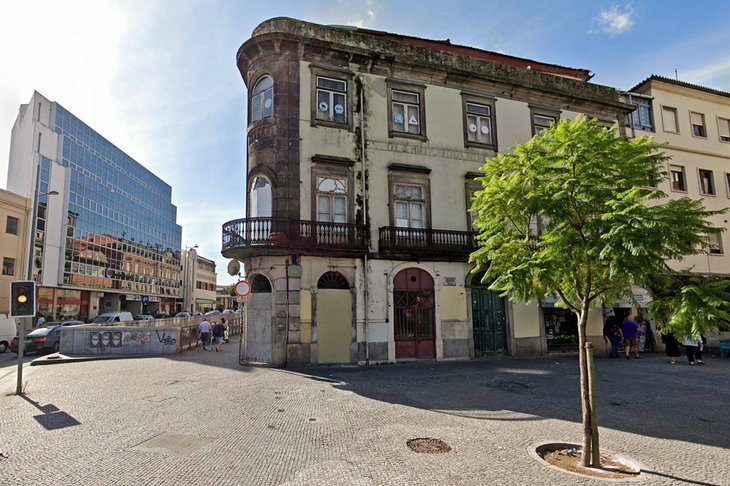This is building rehabilitation that is also historic preservation in Porto
Article

One of the most exquisite hotels of 19th century Porto will be rehabilitated for long term housing. We are talking about the Hotel do Louvre, which will be renovated while keeping the original architecture layout. The works are estimated to last circa 12 months.
The building is located at the corner of Rua do Rosário with Rua D. Manuel II, in Porto. It was built in 1863, and its eclectic architecture is a mix of the main influences of the time, namely the Pombaline style, which in Porto is called Almadino, a Portuguese architectural style of the 18th century, named after Sebastião José de Carvalho e Melo, the first Marquês de Pombal.
The eclecticism in architecture includes artistic iron railings verandas on the second floor, which are currently rusted and unsafe. It will be rehabilitated by FL Construções, to the purpose of "long term housing.
This is a rather sober in style building, which belonged to Gaspar Joaquim Borges de Castro, father-in-law of the second Count of S. João da Pesqueira. The place was turned into a hotel, with an extended covered terrace and it was considered a luxury hotel managed by Maria Huguette de Melo Lemos e Alves, probably Borges de Castro's mistress.
The hotel was home to several institutions and associations throughout the years, such as the Orfeão Lusitano (1927-1930), the Sport Comércio e Salgueiros (in the 1930s), the Cineclube do Porto (founded in 1945) and even the Movimento de Unidade Democrática (1947-1948), till it was expelled by the PIDE.
Also noteworthy, in 1885, is the fact that these were the headquarters of Casa de Saúde do Dr. António Bernardino de Almeida, one of the first private clinics of Porto.
An interesting trivia that will go down in history is the fact that Emperor D. Pedro II of Brazil and his entourage stayed in the hotel in 1872, checked out without paying the bill, leading the manager, Maria Huguette de Melo to address the matter in court. She even travelled to Brazil to demand payment, which eventually was settled by friends of the Emperor.
By the end of the 20th century, the Hotel was a driving school, which was closed following the construction of the Túnel de Ceuta.
The Hotel do Louvre was then definitely abandoned and the building deteriorated.
Now it is time to make sure that this exquisite building will always endure; it will be rehabilitated by FL Construções, to the purpose of "long term housing, keeping the original architecture layout". The works are estimated to last circa 12 months.
Now, this magnificent building will be given a new lease of life.